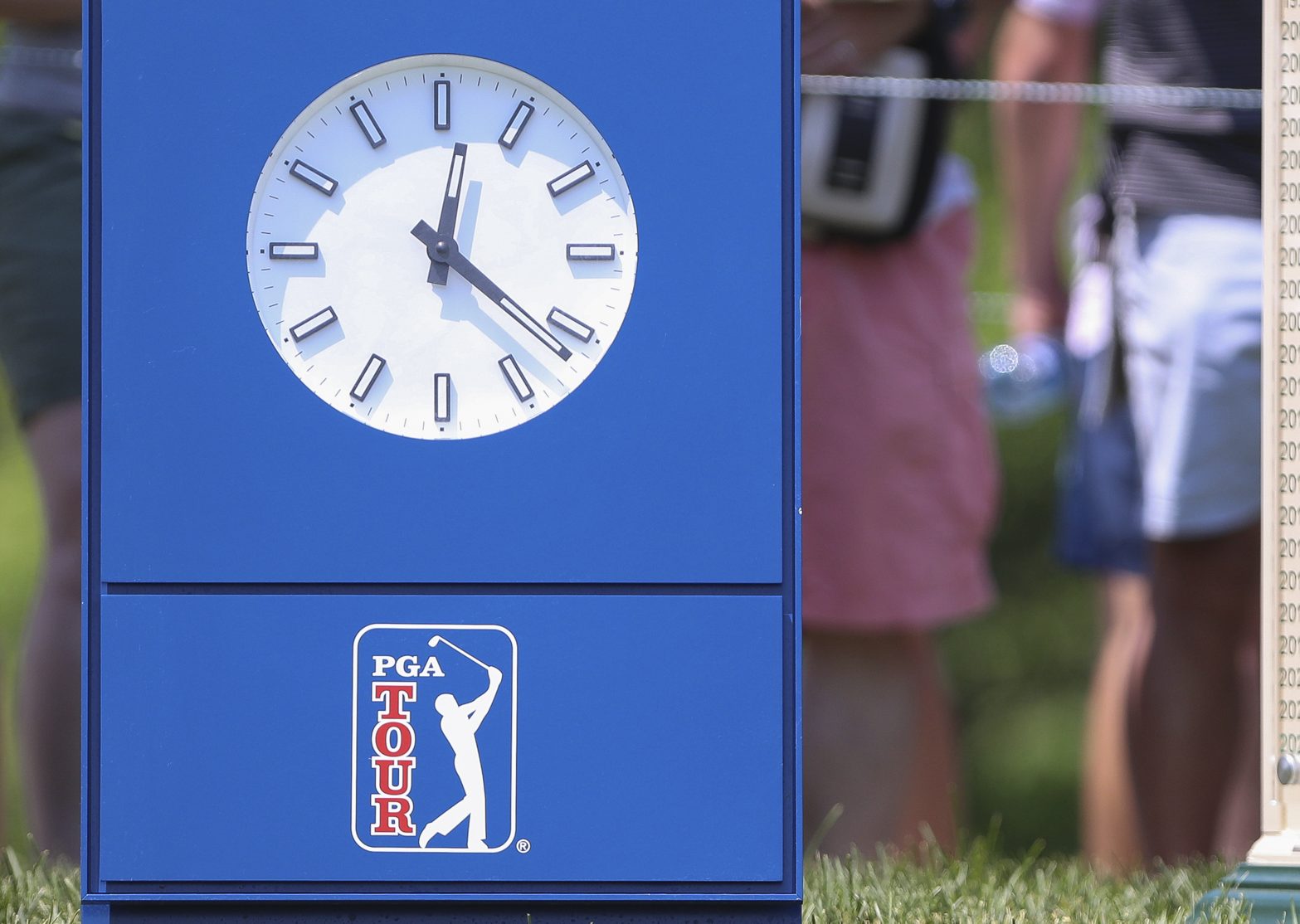The humorist Will Rogers described diplomacy as the art of saying ‘Nice doggie’ until you can find a rock, but not every act of statecraft comes with an option for going on the offensive. So it is with the memorandum Jay Monahan sent to PGA Tour players on July 26, which left an unmistakable impression that the commissioner has a pack of rabid hounds at his heels, and that he’s about all out of rocks.
The reaction to Monahan’s letter focused on its parts rather than the whole. Like the creation of a task force to decide how LIV golfers might rejoin the Tour or his stiff-arming the governing bodies on rolling back the golf ball. The latter isn’t a pressing matter and its inclusion was intended to signal to players that he has their backs on any issue they feel strongly about. That Monahan felt the need to tip his hand on the proposed rollback before the official comment period concludes shows how eager he is to notch something, anything, in the win column. With good reason.
On July 9, hours after Monahan announced his plan to return from medical leave, Randall Stephenson resigned from the PGA Tour’s Policy Board, citing opposition to the agreement with the Public Investment Fund of Saudi Arabia and concerns with a governance structure that permitted an end run around the board to cut that deal. It was an Archduke Ferdinand moment for Monahan, a clear sign of the coming war to be waged by those who feel similarly. So when his memo addressed the process by which Stephenson will be replaced, it exposed how besieged the commissioner is.
Protocol dictates that if a non-player director leaves the Policy Board, the four remaining non-player directors suggest a replacement for approval by all board members. Monahan has instead appointed a four-person committee to source Stephenson’s successor and it includes two player directors: Webb Simpson and Patrick Cantlay. In private, Cantlay has been a vehement critic of the Tour’s leadership since the PIF deal was announced on June 6.
The concessions to critics continued in every paragraph of the placatory memo. Colin Neville, a partner at The Raine Group, a venture capital firm, was named as an advisor to players on the board. Neville is an astute dealmaker in the sports world and earned the respect of top players when Tiger Woods and Rory McIlroy brought him to last year’s meeting in Delaware that helped reshape the Tour to meet the LIV threat. He should prove a valuable resource, but his appointment conveniently staves off an effort by a faction of players to have a high-profile, combative labor lawyer be their representative.
The floorboards atop the Tour’s Global Home were already groaning under the weight of EVPs but another will join the ranks with the promotion of Jason Gore, the ex-player hired in 2022 to manage relations with the membership. This ensures “that players’ perspectives shape all key decisions,” Monahan wrote, adding that Gore’s department now reports directly to him, an admission of the need to keep closer tabs on disaffection in the locker room.
Monahan isn’t without support – Jon Rahm and Billy Horschel have publicly backed him – but the PGA Tour now has more vocal constituencies with competing priorities than a Democratic convention. And as in politics, plenty of folks want to see someone else lead the party. That’s why his memo emphasized the one thing all players can agree on: mo’ money. He cited the record-breaking prize money on offer in ’24 and dangled the promise of a “financially significant” benefits package as part of a PIF deal to reward those who didn’t leave for LIV. Amid all of that forelock tugging, his rollback declaration was needless prostration.
The intended deal with the Saudis is now routinely couched in cautious caveats and Monahan described negotiations as “complicated and time intensive.” That means the details for which players are hungry – on terms with the PIF and on potential alternative sources of capital – are not imminent. Monahan’s late-night memo was a necessary attempt to sate the braying hounds, but it’s unclear if it can buy him sufficient time to deliver on what he is promising.
We are witnessing the end of an imperious era in Ponte Vedra, one that reached its apogee under Tim Finchem. There’s been a seismic power shift within the PGA Tour away from the commissioner’s office and toward members. It began with the rise of LIV, but the announcement of the Saudi agreement and the manner in which it was handled has seriously undermined the executive branch. “We have a ton of momentum heading into the final stretch of the season, and my priority is to reconnect with all of you,” Monahan signed off gamely. By reconnect he doesn’t mean catching-up after his absence, but to re-establishing trust in his leadership and in the very governance of the Tour. For all of the concessions he has just made to that reality, a rancorous and divisive period lies ahead.

